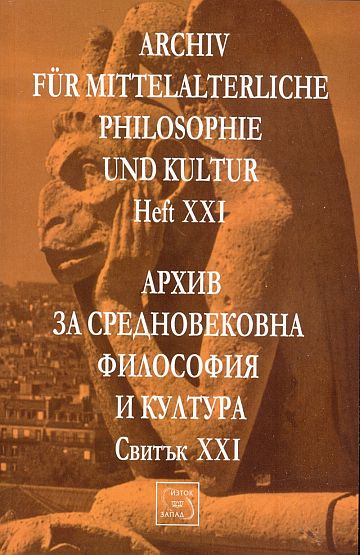Онтологиjа на динамизмот каj свети Максим Исповедник како довршување на хеленската мисла
Ontology of Dynamism as Entelechy of the Hellenic Thought
Author(s): Risto SolunčevSubject(s): Philosophy of Middle Ages, Pastoral Theology, Eastern Orthodoxy
Published by: Издателство »Изток-Запад«
Keywords: Maximus Confessor; Neoplatonism; Byzantine philosophy; Plato; dynamic ontology; logos; Christ
Summary/Abstract: The aim of the author is to examine the possibility for setting the synthetic system of ontology of St. Maximus Confessor as a finalization of Hellenic way of thinking. Namely, the St. Maximus is not influenced by Neoplatonist philosophical paradigm, but, in its core, by Plato and his “Timaios”. The dynamic ontology of the world in St. Maximus philosophy is connected with the claim of Plato that the real being is transcendent in itself, and there is a total abyss between that being and this world. This world participates into the other world, or the other world participates in this world in a mysterious way according to Plato, but this world is like a shadow to the other world. Plato, as well as St. Maximus, insists on keeping the ontological discrepancy between the two types of being. This is not maintained in the philosophy of Plotinus and in Neoplatonism for sure. They resolve the problem by asserting that the world is one causal effect – ennead from the One, abolishing the ontological discrepancy in pantheistic manner. For ancient Greeks, only the eternal being is being in strict sense of meaning. After Plato, only one bifurcation is possible, directing the ontology to Plotinus on one hand, and to the Christian philosophy on the other hand. The complex system of St. Maximus Confessors’ ontology of logoi set in the world (ontology based on difference between the essence of God and God’s uncreated energies which are plans of God’s ecstatic love that participate in his creation), resolves the problem of Hellenic thought as entelechy: how to keep the source of being as transcendent essence and in the same time to save the world ontology not as a shadow but as eikon, as a symbol, as a part of the life of God’s Logos – Christ.
Journal: Архив за средновековна философия и култура
- Issue Year: 2015
- Issue No: 21
- Page Range: 147-170
- Page Count: 24
- Language: Greek, Ancient (to 1453), Macedonian
- Content File-PDF

